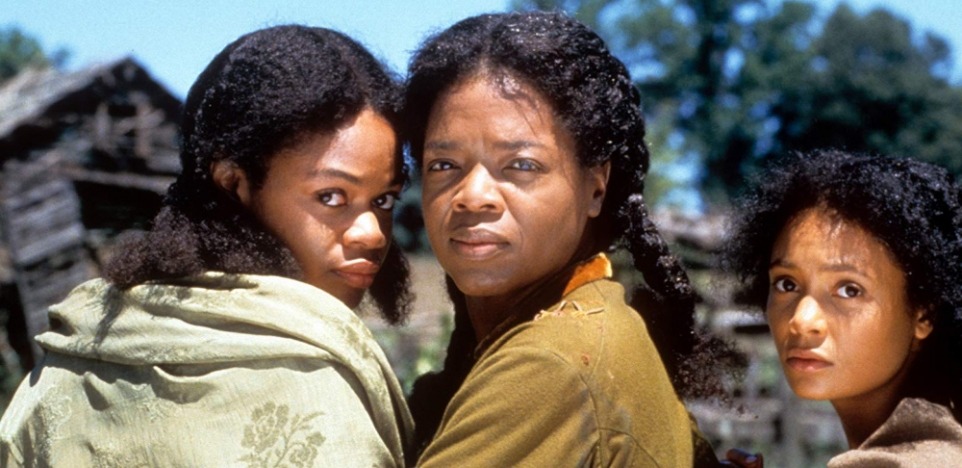Examining Trauma in Toni Morrison's "Beloved" - Stamp Paid vs Halle
Insanity is something that is often glanced over in Toni Morrison's Beloved. While assuredly not of central importance to the story, elements of trauma and mental illness lie under the surface in almost every scene of the book. It's only natural that most characters would struggle with trauma when considering the unimaginably scarring experiences that most characters in Beloved have gone through. That said, some characters seem to be more haunted by pasts than others. To me, the most interesting example is the contrast between Halle and Stamp Paid––where Halle goes insane as a result of a traumatic incident while Stamp Paid is instead able to keep his sanity after going through something similar.
We eventually learn from Paul D that Halle goes insane shortly after secretly witnessing the violation of his wife years ago. Halle’s descent into insanity underscores the devastating psychological toll of slavery. The trauma of being powerless in that moment shatters his mind, leaving him unable to cope with the dehumanization he endured. His subsequent breakdown, symbolized by the butter-smearing incident, reveals how deeply slavery corrodes not just physical freedom but also mental stability--especially when there is no space to process or heal from such experiences.
In contrast, Stamp Paid endures his own trauma--giving up his wife to a white man to save her life--but responds differently. Rather than collapsing under the weight of his suffering, he channels his pain into helping others escape slavery. His name, "Stamp Paid," further reflects his attempt to reconcile his past by framing his sacrifices as paid debts. This sense of purpose and connection to community allows him to process his grief in ways Halle could not, highlighting the role of agency and support in managing trauma.

I think this connection is very interesting. I would've never thought to compare Halle and Stamp Paid's experiences. However, as you mentioned, both experienced mortifying things done to their wife's and handled in different ways. I agree with the point you've made in the sense that Toni Morrison shows us two ways to cope with insanity. Overall great post!
ReplyDeleteHalle and Stamp Paid's outcomes are a good reflection of the overall traumatizing experience of slavery. In one instance, Hall collapses after being understanding his life and possession can be taken whenever his "masters" wanted. As for Stamp Paid, he focuses his pain on defying this idea of dehumanization, instead of falling under the weight of slavery's influence.
ReplyDeleteThis is a fascinating comparison, and it calls to mind the fact that Ella too has a trauma in her past that echoes Sethe's--her captors ("the worst yet") had impregnated her through rape, and she let the "white baby" die without feeding or caring for it. Her act of infanticide is not as extreme or violent as Sethe's, perhaps, but it's certainly in the same ballpark. (Also we have the example of Sethe's own mother "keeping" her while throwing away the "white babies" produced by rape over the side of the ship.)
ReplyDeleteOne big difference between Stamp's experience and Halle's is that Halle has been conditioned to think of himself as a "man," so the sudden and stark realization of his impotence to offer any protection to his wife comes as a devastating shock. Stamp's self-renaming represents more of a "last straw" dynamic, where "agreeing" to "hand over" his wife (at HER insistence) becomes a pivot point that changes his own sense of self forever. Again, we see an example of how Garner's relatively less severe treatment of the enslaved people on his property has messed Halle up: paradoxically, thinking he's a "man" ends up showing him just how limited that "manhood" truly is.
I think it's interesting how different characters deal with their trauma. Sethe tries to forget about it and leave it in the past while Halle and Stamp Paid both have other ways of dealing with their trauma. I also like your point about the ways people can deal with traumatic situations. Great post!
ReplyDeleteI think while this comparison could be made for almost all characters within the book, Halle vs Stamp Paid is one of the most interesting. Stamp Paid dedicates himself to helping others deal with their trauma, which in turn helps him, while Halle descends into insanity and goes missing to never be seen again. The fact that there even is this trauma to be dealt with is very saddening, and Morrison does a beautiful job portraying how each character is forced to deal with it.
ReplyDelete